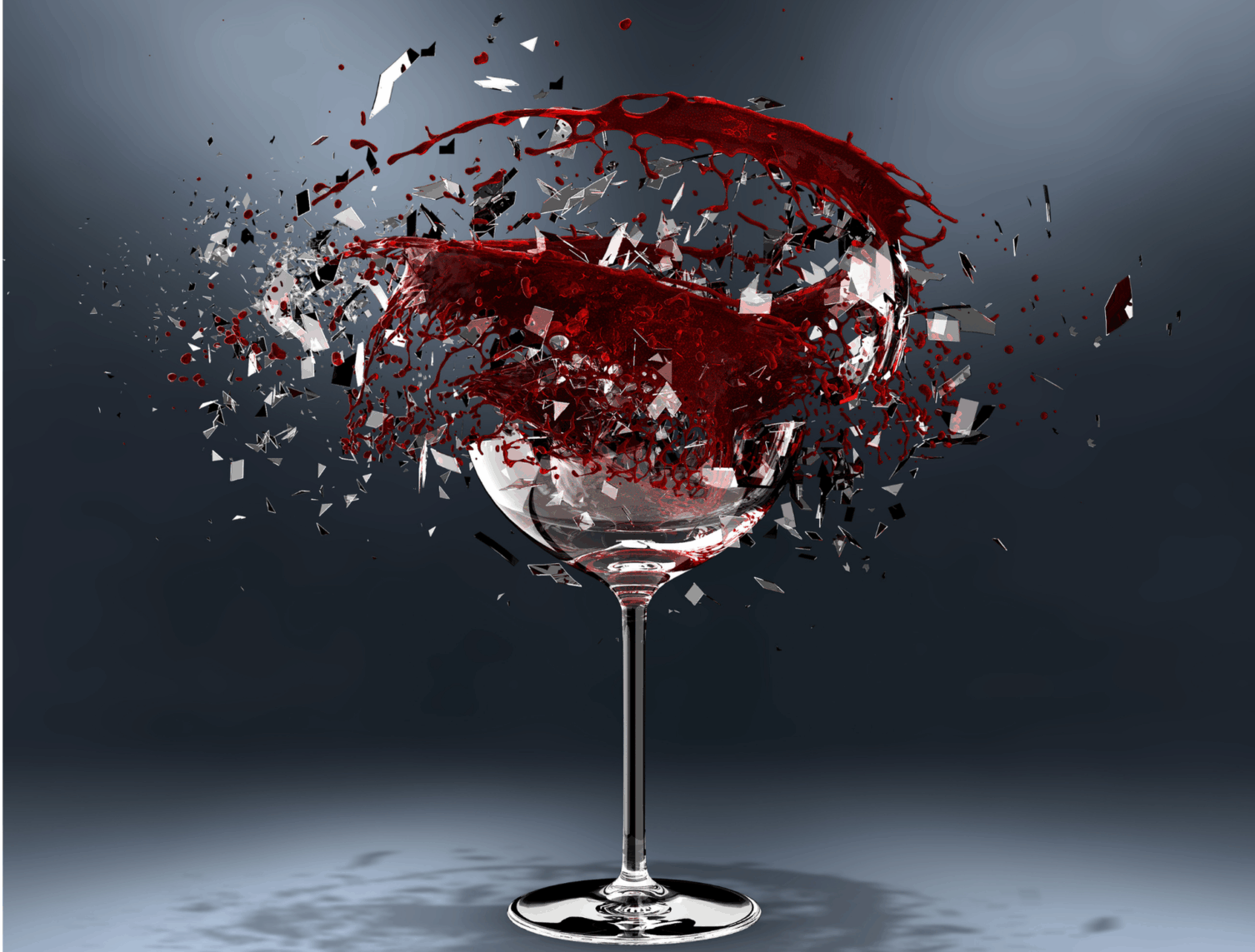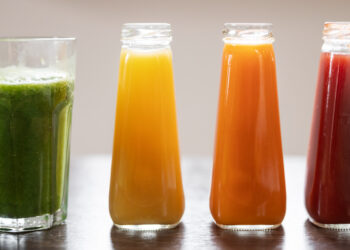Author – Rachana Patani
Guest Contributor – LaTonia Rich, Certified Peer Recovery Specialist
It started innocently enough—just one glass of wine after a long day. Work had been brutal, I was drained, and that drink promised to take the edge off.
Later that week, a friend called. “Let’s grab a drink,” she said. We laughed, caught up, had a couple rounds. Then the weekend came. First, it was happy hour with co-workers, then dinner plans, and a birthday celebration. Would you believe, alcohol just happen to slip in, like it belonged.
Before I knew it, I was drinking three, maybe four times a week.
Nothing wild. Nothing “concerning.” Just… routine.
But somewhere along the way, things changed. My sleep got worse. My mood dipped. I felt foggy, out of sync, not myself. In just a few months, I gained a significant amount of weight. Probably all those extra calories. Alcohol made me super hungry, and a drink just wasn’t complete without something fried, salty or sugary. When I started losing hair, however, I knew something deeper was going on.
I kept pushing through, assuming I was just overworked, burnt out, and the weight gain was likely because I was getting older. But one evening, as I poured a drink, I stopped and asked myself,
“Is this really helping me?”
The silence that followed said everything.
So, I decided to take a break. Not forever. Just a real pause—to see how I felt without alcohol in the mix.
A Moment of Clarity—and a Conversation That Changed Everything
Curious and newly clearheaded, I started reading. Researching. Trying to understand what alcohol might really be doing to my body, mind, and well-being.
That’s when I reached out to LaTonia Rich, someone I knew could offer perspective beyond the headlines.
LaTonia is the Executive Director of Tree of Hope Association, a peer-led organization based in Rockville, Maryland. Tree of Hope provides one-on-one certified peer services, training, and supervision to help people navigate life with greater clarity, intention, and support. While LaTonia and her team are deeply engaged with the recovery community, they also work with individuals from all walks of life—partnering with treatment centers, shelters, and local government agencies to help people connect to community, recovery pathways, and the resources they need to take a more conscious, empowered step forward.
“People assume alcohol is harmless because it’s legal and everywhere,” LaTonia told me.
“But over time, it wears on the body—and even more on the mind. It numbs what actually needs attention.”
Whoa! That hit a nerve. My access drinking was masking something–maybe I was trying to avoid working on my career, health, goals… and the list goes on.
LaTonia described how alcohol interferes with our nervous system, sleep cycles, hormonal balance, and emotional resilience. What feels like relaxation is often just sedation—temporary relief followed by rebound anxiety, inflammation, and fatigue.
“You don’t need to hit a wall before deciding to take a step back,” she said.
“Sometimes the best thing you can do for your health is to just get curious—and listen to how your body feels.”
That conversation changed how I saw things. It wasn’t about addiction or labels. It was about awareness, honesty, and well-being.
What Alcohol Actually Does to Us
We’ve long been sold the idea that moderate drinking is fine—even good for us. But the science now tells a very different story.
A major study in The Lancet confirmed that no amount of alcohol is truly safe. Not a glass of red wine. Not one drink with dinner. Not even “just on weekends.”
Here’s what we now know about how alcohol contributes to health risks:
Cancer Risk Alcohol is linked to at least seven types of cancer, including breast, liver, and colon. One in seven new global cancer cases is tied to alcohol use.
Heart Disease & Stroke It contributes to heart disease and stroke by raising blood pressure, weakening heart muscle, and affecting blood clotting. And it contributes to 10% of global cardiovascular deaths.
Addiction & Dependence Nearly 30 million Americans met the criteria for alcohol use disorder in 2022—less than 8% got treatment.
Lower Libido Alcohol can contribute to lower libido in males. Excessive alcohol consumption can disrupt hormone production, leading to lower testosterone levels, which are crucial for sexual desire and function. Additionally, alcohol can numb sensations, making arousal and orgasm more difficult, and can even cause delayed ejaculation or inability to ejaculate at all. In women, it can lead to lower sex drive and reduction in arousal.
Mental Health We often forget, alcohol is a depressant. It alters mood and brain chemistry. It disrupts your sleep by altering sleep stages, particularly reducing deep sleep and REM sleep, leading to fragmented sleep and more frequent awakenings. It also interferes with the body’s natural sleep-wake cycle (circadian rhythm) and can worsen sleep apnea symptoms.
For me, learning all of this made me realize, that it’s not just about physical health, but about your emotional bandwidth, your energy, your ability to be fully present in your own life.
Why Are Some People Breaking Up with Alcohol?
The shift is happening. Quietly, but powerfully.
More people are choosing to step back from alcohol—not because they’ve hit rock bottom, but because they’re realizing it just doesn’t serve them anymore.
When they take a break, many notice clear benefits, including:
Sleeping better With fewer groggy mornings and restless nights.
Feeling more energized Since even small amounts of alcohol can cause fatigue.
Experiencing less anxiety As the temporary “relaxing” effect gives way to rebound stress.
Gaining mental clarity Free from brain fog, allowing for greater focus and creativity.
And here’s the kicker–most people don’t miss it as much as they thought they would!
But What About Red Wine?
Let’s address the grape in the room.
I get asked all the time: “But red wine’s good for your heart… right?”
Not really.
Yes, red wine contains resveratrol—an antioxidant. But so do grapes, berries, and even dark chocolate. You don’t need to sip a toxin to get those benefits. Whatever minimal upside it might have is completely overshadowed by alcohol’s well-documented impact on your body and brain.
And here’s something else that’s rarely talked about: sulfites.
These are preservatives commonly found in wine—especially red wine—that can trigger inflammation, headaches, and allergic reactions in some people. While the FDA considers sulfites generally safe, they can cause adverse effects in sensitive individuals. People with asthma, in particular, may be more prone to sulfite-related symptoms. For those affected, that seemingly harmless glass of wine can feel a lot less relaxing—and a lot more uncomfortable.
So if you’re drinking wine for your health—there are far better (and safer) ways to get antioxidants. If you love it, enjoy it consciously and not use it as a health elixir.
So… Should You Take a Break?
You don’t have to label yourself. You don’t have to make a forever decision.
But if you’ve been asking questions—Do I actually need this drink? Am I feeling my best? Could I be clearer, calmer, more me without it?—you’re already halfway there.
Try a pause. A reset. A moment of clarity.
You’re Not Alone
Whether you’re exploring a “dry month” or simply starting to notice how alcohol affects your body and mind, know this: you don’t have to wait for a crisis to make a change.
As LaTonia Rich told me:
“Everyone’s path looks different.”
And I’ll add this: your journey is yours alone, but that doesn’t mean you have to go it alone.
But as for me….dear alcohol…
It’s not me. It’s you.
And I’m finally choosing me.
 LaTonia Rich is the Executive Director of Tree of Hope Association, a Recovery Community Organization in Maryland. She is also a Certified Peer Recovery Specialist, Recovery Peer Supervisor for the State of Maryland, and Supervisor of Montgomery County’s Substance Misuse Team, STEER. A trusted trainer, mentor, and leader in the peer recovery field, LaTonia received the Unsung Hero Award at the 2020 Tuerk Conference.
LaTonia Rich is the Executive Director of Tree of Hope Association, a Recovery Community Organization in Maryland. She is also a Certified Peer Recovery Specialist, Recovery Peer Supervisor for the State of Maryland, and Supervisor of Montgomery County’s Substance Misuse Team, STEER. A trusted trainer, mentor, and leader in the peer recovery field, LaTonia received the Unsung Hero Award at the 2020 Tuerk Conference.
About Tree of Hope
The Tree of Hope Association is a peer-led organization based in Rockville, Maryland. They offer one-on-one peer support services certified by the state of Maryland, along with peer training and supervision. Their work focuses on empowering individuals to self-direct toward healthier, more mindful lives—whether they’re seeking recovery or simply ready for a change.






I drink bcos the bible ask me to… “Take aliku wine for Thy stomach sake”… . I’m just being an obedient bible scholar.. nothing more.
And before you comes after my comment… remember the bible says, “Touch not thy annointed and do my prophet no harm.”
A good read Rachana….. thanks for posting.
Thank you reading and your comment, Uche. Wish you much love.